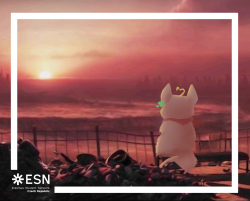Environmental Sustainability is one of the six Causes of ESN. Environmental sustainability is ensuring the avoidance of the depletion of natural resources in order to maintain an ecological balance while meeting our needs for water, food, shelter, and social interaction.
Increased mobility has a costly impact on the environment due to frequent travelling. The goal of ESN is to reduce this impact by organising greener events and activities and by raising awareness among international students.
ESN leads international students to a greener and more sustainable lifestyle during their exchange. Some sections organise workshops on zero waste lifestyle, how to recycle, make their events greener, e.g. by using wooden cutlery and paper plates instead of plastic ones, clean trash in a certain area or plant trees.
Environmental Sustainability Cause meets 4 out of 17 Sustainable Development Goals by the United Nations. In this field those are: 12) Responsible Consumption and Production, 13) Climate Action, 14) Life Below Water and 15) Life on Land.
The three R’s rule
By reusing things, you are giving them a second life. Isn’t it great to get a second chance? Imagine how you save a single-use bottle every time you use your reusable one. It is the same with shopping bags. You can buy a new plastic one every time, or you can buy a reusable one, so you save one bag every trip to the shop.
Recycle, it happens at the end of a life cycle of your product. Think, did you even need it (reduce)? Is it possible to use it again (reuse)? If both answers are no, then it is time to dispose of the product. Be sure to do it correctly. Put it in the trash bin in which it belongs. Yellow for plastic, blue for paper, green for glass and brown for biodegradable products (kitchen waste). However, different rules apply in different municipalities or even cities. Be sure to check the rules.
Zero Waste
The most waste is produced in the kitchen and bathroom. Zero waste is a lifestyle, which aims to reduce or completely eliminate the amount of waste you produce. Packages are definitely the biggest fraction of waste. By eliminating the number of packages you use, you can significantly eliminate your waste. Try to look for the products packaged in recycled materials or even better, products that are not packed, either because they do not need a package or you can use your own. Zero waste is not to be mistaken for minimalism. A minimalist can throw away things they do not need anymore, while a zero waster thinks if there is a chance for the things to serve its purpose to someone else, or use it in a totally different way.
Green Erasmus
The aim of Green Erasmus is to improve the environmental sustainability of the Erasmus+ Programme. The Erasmus+ Programme has a negative impact on the environment due to the increased mobility of its participants. Climate change is a real threat and everybody can help. Millions of people heading to zero waste life imperfectly are better than 10 people doing it perfectly. One of the main goals is to convince students to prefer a more sustainable means of transport. To prefer a train over a plane if possible, to take a bus instead of a car or to take a bike instead of a bus. Students will also be led to become responsible consumers during their exchange. Sustainability will be at the heart of activities organised by student organisations like ESN.
Tips
Here are some simple tips on how you can become a more environmentally friendly person:
- Avoid using single-use things like single-use cups, dishes or food boxes
- Reduce your plastic usage, mainly plastic bags,
- Reduce your carbon footprint, prefer more sustainable means of transportation, consume energy only when needed, don’t change your electronics too often
- Buy products in local shops, thus you cut the exhaust fumes, also try to shop in a package-free shop, if there is any

